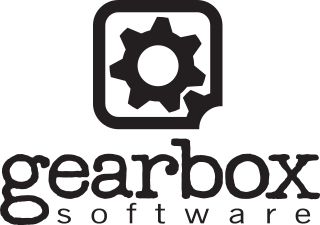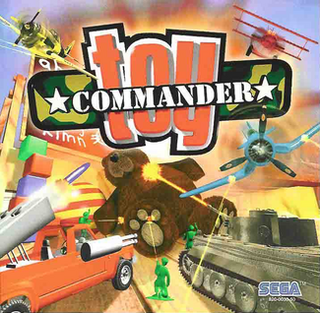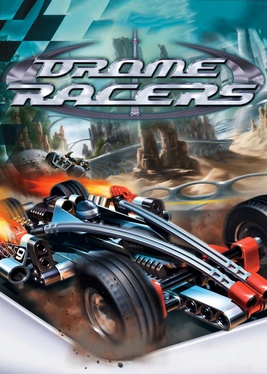
Maxis is an American video game developer and a division of Electronic Arts (EA). The studio was founded in 1987 by Will Wright and Jeff Braun, and acquired by Electronic Arts in 1997. Maxis is best known for its simulation games, including The Sims, Spore and SimCity.

Tux Racer is a 2000 open-source winter sports racing video game starring the Linux mascot, Tux the penguin. It was originally developed by Jasmin Patry as a computer graphics project at the University of Waterloo. Later on, Patry and the newly founded Sunspire Studios, composed of several former students of the university, expanded it. In the game, the player controls Tux as he slides down a course of snow and ice collecting herrings.
Tecmo Co., Ltd., was a Japanese video game corporation founded in 1967. It had its headquarters in the Kudankita district of Tokyo. Its subsidiary, Tecmo Inc, was located in Torrance, California. Tecmo was formerly known as Tehkan.
Obsidian Entertainment, Inc. is an American video game developer based in Irvine, California. It was founded in June 2003, shortly before the closure of Black Isle Studios, by ex-Black Isle employees Feargus Urquhart, Chris Avellone, Chris Parker, Darren Monahan, and Chris Jones.

Mythic Entertainment was an American video game developer based in Fairfax, Virginia that was most widely recognized for developing the 2001 massively multiplayer online role-playing game Dark Age of Camelot. Mythic was a prolific creator of multiplayer online games following its establishment in the mid-1990s.

Gearbox Software is an American video game development company based in Frisco, Texas. It was established as a limited liability company in February 1999 by five developers formerly of Rebel Boat Rocker. Randy Pitchford, one of the founders, serves as president and chief executive officer. Gearbox initially created expansions for the Valve game Half-Life, then ported that game and others to console platforms. In 2005, Gearbox launched its first independent set of games, Brothers in Arms, on console and mobile devices. It became their flagship franchise and spun off a comic book series, television documentary, books, and action figures. Their second original game series, Borderlands, commenced in 2009, and by 2015 had sold over 26 million copies. The company also owns the intellectual property of Duke Nukem and Homeworld.

Surreal Software was an American video game developer based in Kirkland, Washington, and a subsidiary of Warner Bros. Interactive Entertainment, known for The Lord of the Rings: The Fellowship of the Ring, The Suffering and Drakan series. Surreal Software employed over 130 designers, artists, and programmers. Surreal was acquired by Warner Bros. Games during the bankruptcy of Midway Games in July 2009. After a significant layoff in January 2011, the remaining employees were integrated into WBG's Kirkland offices, along with developers Monolith and Snowblind.

Free Radical Design Ltd. is a British video game developer based in Nottingham. Founded by David Doak, Steve Ellis, Karl Hilton and Graeme Norgate in Stoke-on-Trent in April 1999, they are best known for their TimeSplitters series of games. After going into financial administration, it was announced on 3 February 2009 that the studio had been acquired by German video game developer Crytek and would be renamed Crytek UK. Crytek had a good relationship with the city of Nottingham due in part to its sponsorship of the Gamecity festival and its recruitment drives with Nottingham Trent University. In 2014, the studio would close and a majority of the staff transferred to the newly formed Dambuster Studios. In May 2021, the original founders reformed the studio, led by Doak and Ellis, to create a new entry in the TimeSplitters series. The current studio incarnation operates under Deep Silver.

Star Wars Episode I: Racer is a 1999 racing video game based on the podracing sequence in the film Star Wars: Episode I – The Phantom Menace. The game features all of the racers and race course on Tatooine from The Phantom Menace. It adds several new courses, on Tatooine and various planets. It has several single player modes, including a tournament mode. The format of multiplayer mode varies by platform. Jake Lloyd and Lewis MacLeod, who portrayed Anakin Skywalker and Sebulba in The Phantom Menace, reprise their film roles in the game.

Need for Speed: High Stakes is a 1999 racing video game developed by EA Canada and EA Seattle and published by Electronic Arts for the PlayStation and Microsoft Windows. It is the fourth game in the Need for Speed series and a follow-up to Need for Speed III: Hot Pursuit. The game features more realistic elements than its predecessors and introduced a damage system that allows cars to take damage when colliding with objects, affecting their appearance and performance. It also introduced a series of economy-based tournaments, awarding players with a cash prize that can be spent on repairing, purchasing, or upgrading cars for subsequent races. The game's Hot Pursuit mode, which was introduced in Hot Pursuit, was expanded with more options, allowing players to control police pursuits attempting to stop racers.

Deep Silver Volition, LLC was an American video game developer based in Champaign, Illinois. Mike Kulas and Matt Toschlog founded the company as Parallax Software in June 1993, developing Descent and Descent II. By the time the sequel was completed, Toschlog had relocated to Ann Arbor, Michigan, with some employees to operate a satellite studio for Parallax. Kulas and Toschlog decided to split up the company, with Toschlog establishing Outrage Entertainment and Kulas staying with Parallax, which was renamed Volition in November 1996. With publisher Interplay Entertainment, Volition created Descent: FreeSpace – The Great War and its sequel, FreeSpace 2. The two companies parted ways during the development of Summoner.

Grasshopper Manufacture Inc. is a Japanese video game developer founded on March 30, 1998 by Goichi Suda. They are well known for creating titles such as Killer7 and the No More Heroes series.

Toy Commander is an action game for the Dreamcast developed by No Cliché and published by Sega.

Lego Racers is a Lego-themed racing video game developed by High Voltage Software and published by Lego Media in 1999.

Rockstar Vancouver Inc. was a Canadian video game developer and a studio of Rockstar Games based in Vancouver. The studio is best known for developing Bully (2006).

Drome Racers is a Lego racing video game developed by Attention to Detail and published by Electronic Arts and Lego Interactive. It was released in 2002, for PlayStation 2 and Microsoft Windows, and later ported to GameCube. A spin-off was also released for Game Boy Advance, which was published by THQ. It is the third Lego racing game, released a year after Lego Racers 2, which was also developed by Attention to Detail.

Klei Entertainment Inc. is a Canadian video game development company located in Vancouver, British Columbia. Klei was formed in July 2005 by Jamie Cheng. Their best-known titles include Don't Starve and Oxygen Not Included.

Gubble, also known as Goober in select regions, is a Microsoft Windows and PlayStation game developed by Actual Entertainment. The non-violent gameplay was a key aspect mentioned in the game's promotional material. The game has a soundtrack of instrumental songs composed by Seppo Hurme.

Redline Racer is a racing game that was developed by Criterion Games and published by Ubi Soft.

Buggy is a racing game developed and published by Gremlin Interactive in 1998, and published in North America by Fox Interactive. The game was released in North America as Team Losi RC Racer due to it having a license from RC car manufacturer/racing team Team Losi.

















